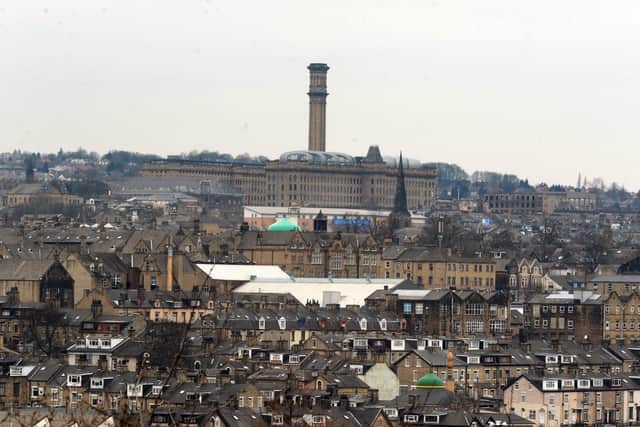Three-quarters of Londoners say they have good opportunities but only 44 per cent in Yorkshire believe the same, Social Mobility Commission research reveals
A third said they feel inequality has increased by "a lot" and 23 per cent by a little, according to the Social Mobility Commission (SMC). And its 2021 Social Mobility Barometer reveals "deep concern" that social division has increased, with 79 per cent of adults saying they believe there is a large gap between classes.
The YouGov poll, of 4,693 adults between January 27 and February 1, also found a stark north/south divide in terms of how people feel about their prospects.


Advertisement
Hide AdAdvertisement
Hide AdOnly 31 per cent of people in the North East and 44 per cent in Yorkshire and the Humber believe opportunities to progress in their area are ‘good’, compared to 74 per cent in London.
And people in the North were the most likely to say they have suffered more in terms of education, employment and living standards, amid fears that "the opportunity to live a good life is becoming increasingly unattainable for too many people" in the region.
It comes as Labour's Shadow Schools Minister West Streeting warns that the government’s “tunnel vision” in education is failing to help children in deprived areas, who face a rising tide of socio-economic issues that impact on their schooling.
Addressing northern leaders today, Mr Streeting will say that while the Opportunity Areas programme, a Department for Education programme designed to raise social mobility, had “some fantastic people involved in them”, including in Bradford, Doncaster and in the North Yorkshire coast communities in Yorkshire, their current focus was too narrow.
Advertisement
Hide AdAdvertisement
Hide AdHe is expected to say: “For all the talk of levelling up, there is still a postcode lottery in England today. We are seeing more children experiencing deeper disadvantage and poorer life chances, disproportionately concentrated in the North of England.”
Almost half (47 per cent) of respondents said they want the Government to prioritise increasing employment opportunities, 46 per cent mental health and 33 per cent education as part of the nation's recovery plan.
Steven Cooper, SMC interim co-chairman, said: "The pandemic has had a devastating impact on jobs, training and mental health, particularly among the most disadvantaged groups.
"This poll dramatically underlines public concern about growing social inequality. Government, employers and educators should listen and act. The most disadvantaged - at home, school or work - should now be put centre stage in any recovery plan."
Advertisement
Hide AdAdvertisement
Hide AdThe SMC is to move to the Cabinet Office, where it aims to inform the Government's levelling up agenda to create a more equal society, particularly in the regions.
Overall, its survey found 39 per cent of respondents think it is getting harder for people from less advantaged backgrounds to move up in British society, 28 per cent said it is much the same and 23 per cent said it is getting easier.
Sarah Longlands, Director of IPPR North said: “It is unjust, but unsurprising that the Social Mobility Commission found people in the North were most likely to say they have suffered more in terms of education, employment and living standards during the pandemic.
"This is because we know that the opportunity to live a good life is becoming increasingly unattainable for too many people in our region.
Advertisement
Hide AdAdvertisement
Hide Ad“Too few people in the North have qualifications at NVQ level 4 or above. There are fewer job opportunities in our region compared to the rest of England, and healthy life expectancy is below the English average in the majority of Northern areas. In fact, it’s even fallen in some places.
“The UK entered the pandemic as the most regionally divided country of its size and level of development and this has had unacceptable consequences for Northerners.
"For all of the warm words we have heard recently on ‘levelling up’, in reality what we’ve seen is a levelling down of peoples’ hopes and opportunities for the future. Government needs to let go of power, so that places can work to narrow these divides once and for all”.
Meanwhile, three of the five areas with the highest rates of new coronavirus cases are in Yorkshire, new figures reveal.
Advertisement
Hide AdAdvertisement
Hide AdOn a day when Covid-19 case rates fell below the symbolic level of 50 cases per 100,000 people in half of all local areas in the UK, Hull, Bradford and Rotherham’s rates remain over 140.
But nationwide there is a major turnaround from a month ago, when only six of the 380 local areas were reporting rates under 50 per 100,000.
Comment Guidelines
National World encourages reader discussion on our stories. User feedback, insights and back-and-forth exchanges add a rich layer of context to reporting. Please review our Community Guidelines before commenting.